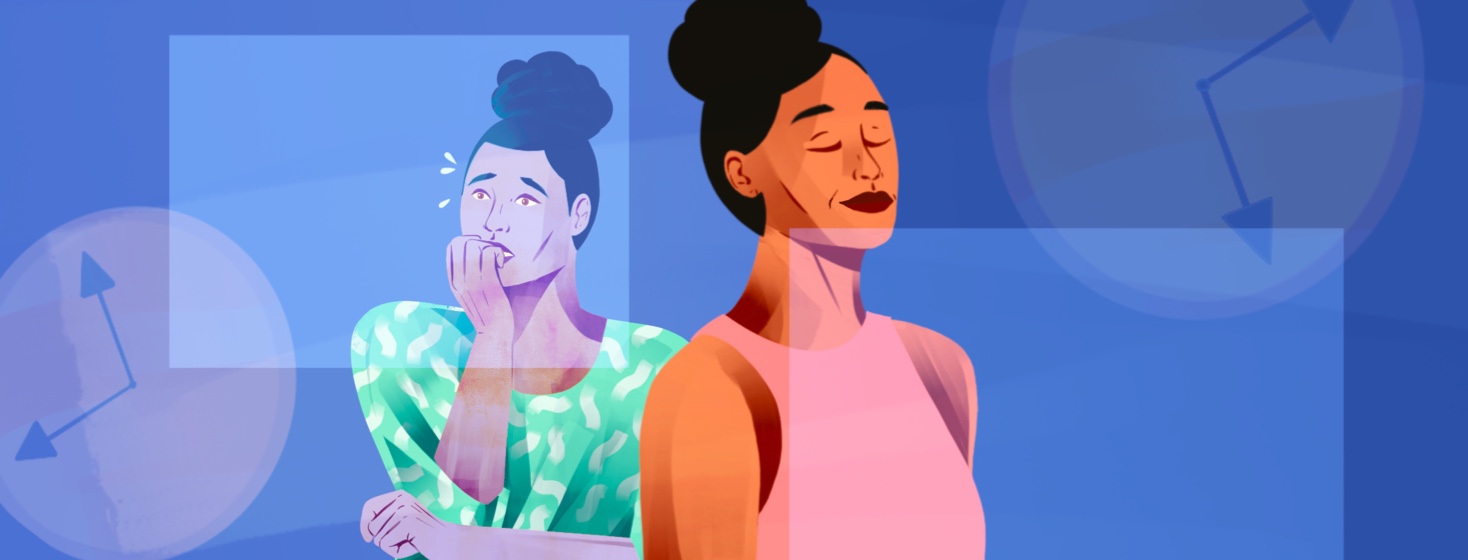Insomnia Versus Delayed Sleep Phase Disorder
As a sleep therapist, I sometimes come across people who seek my help with insomnia - but after a closer look - they do not have insomnia. They could have a variety of other sleep disorders, of course. One of the more common scenarios is this...
People sometimes think they have insomnia because they can't fall asleep until 1 am. They could have difficulty falling asleep because of insomnia, but they could also have a natural variation in their biology that means their brain is timed for sleep later than the majority of the population.
The classic "night owl" is sometimes given the label of having delayed phase syndrome, which I don't particularly like. Variations in sleep timing are a part of nearly every animal on earth, including humans.1
For people with moderate shifts in their rhythm (a typical night owl), the biggest issue is societal and social-external; work life is set up around the majority with an 11 - 7 type of sleep pattern. It's much easier for these people, and early birds, to get to work at 8 or 9 am. A person with a delayed phase would find it very hard to get up on time, and in my practice, many of these people end up self-employed. This way, they can set their own schedule!
Insomnia versus delayed phase syndrome
So, what are some practical differences between sleep onset insomnia and the delayed phase?
In my experience, some key differences are that anxiety or anxiousness about falling asleep is more strongly associated with sleep onset insomnia than a delayed phase. The delayed phase picture has often been there for a very long time, and typically, a sleep onset issue that has been present for a long time also morphs into other sleep disruptions such as nighttime wakings. A delayed phase exists without any sleep worries. Though certainly, someone can have a phase delay and naturally fall asleep later, then worry about that fact, and develop insomnia!
People with delayed phases do not build up sleepiness like others do, so sleep deprivation does not cause a tendency to fall asleep earlier.2
Featured Forum
View all responsesLooking at daily routines and treatment options
Other than the sleep pattern itself, what is different? Typically, a person with a delayed phase will prefer to do physical activity and thinking challenges at later times of the day compared to a person without a delayed phase.
They may choose to do high-energy or high-concentration work in the late afternoon or evening, whereas someone with a "morning lark" tendency might prefer to do these things before 10 am, while the night owl is still sleeping.
Newer assessments look at social jet lag in a delayed phase - the tendency for people stuck in a societal system not designed for them and how their sleep adapts and changes when they do not have to get up for work. This is handy because it represents most employed people! The tool has been around since about 2014 and is continuously revalidated in new populations and has even been adapted to use in shift workers.3,4
Morning light therapy and evening melatonin do not appear to consistently affect rhythms, especially long-term, and so more of a medical management approach may be necessary.3,5
Why is proper assessment and treatment sometimes needed?
It is not just about the social elements. For some people with phase delay, particularly African American males, this biological clock change appears to go hand-in-hand with increased risk for cardiovascular disease.6
But one of the most important reasons for most people to know if they have sleep onset insomnia or delayed phase is this: insomnia treatments are not effective for delayed phase. Struggling to "fix" the incorrect problem is bound to lead to more anxiety, expense, and frustration.
Getting the right diagnosis for better sleep
My humble suggestion is to find out first what the issue is using a qualified provider to help, and then go about finding a solution that works for you so that you can have the quality of life (and sleep) you want.
Do you have a delayed phase? Did you ever think you had insomnia? Or do you have both? I'm sure the community would love to know your experience - you never know who your story might help!

Join the conversation